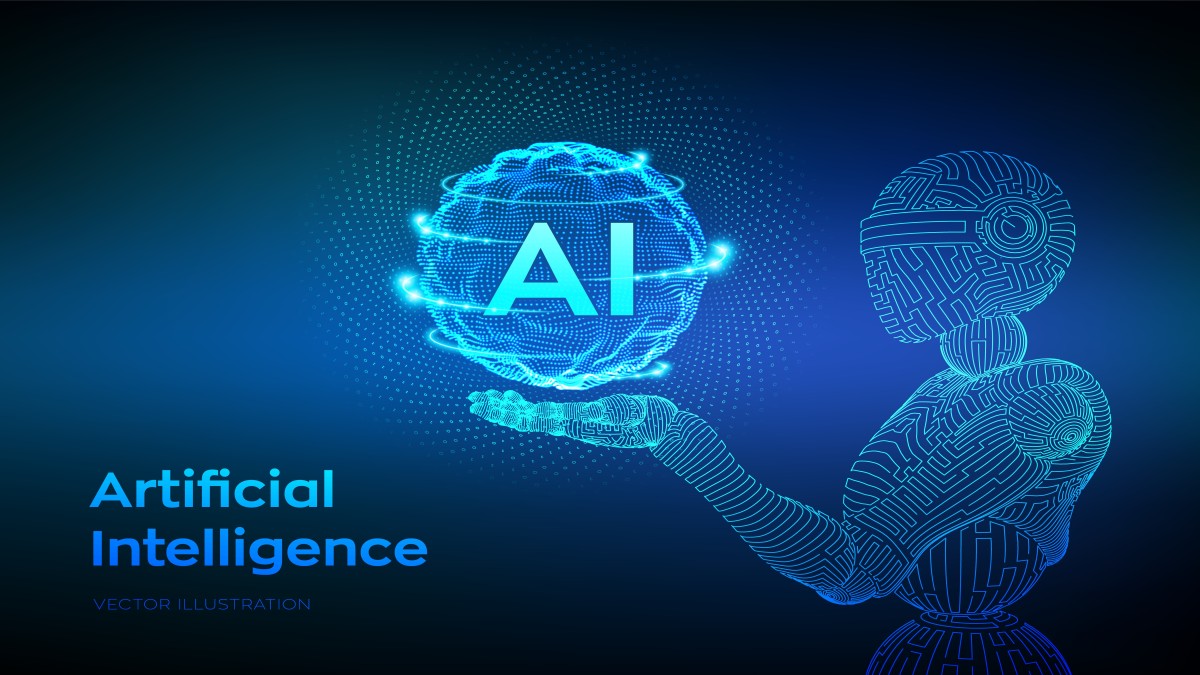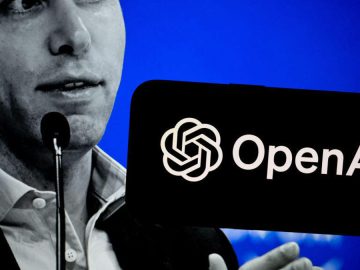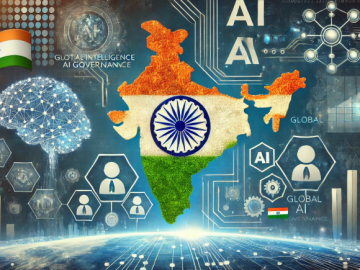By Ramesh Alluri Reddy
The workplace topography is swiftly evolving as technology seamlessly integrates with human talent, reshaping industries in unprecedented ways. Generative AI tools like ChatGPT, Gemini, and MidJourney have become indispensable components of our lives, influencing various aspects from workplace productivity to smart automation. This surge in AI adoption is mirrored by the rapid growth of the Indian AI industry, projected to reach USD 28.8 billion by 2025, driven by a remarkable 45% compound annual growth rate (CAGR) and an increase in AI-skilled individuals. Businesses that prioritise both intelligent machines and human talent are poised to lead in this era of technological transformation. While AI holds immense potential, its success hinges greatly on our ability to nurture a workforce adept in adaptation, data interpretation, creativity and human-centric leadership skills. The amalgamation of business, human capital, economics, and AI underscores the necessity to reassess education systems and social safety nets, ensuring a sustainable and equitable future where technology augments human potential.
The assertion of Nobel Laureate Amartya Sen, emphasising that “development has to be about the freedom of a man to achieve what he has reason to value”, resonates deeply within India’s context. With an average age of 28, India is well-positioned to harness AI to unlock human potential. With favourable policies and significant investments in AI infrastructure, India boasts a vibrant young workforce ready for a transformation, leveraging its human resources to become a centre of innovation and efficiency. The key to this transformation is how soon, how well and how often we are able to upskill our youth to be AI-ready. Apprenticeships emerge as crucial pathways to equip this workforce, providing essential frameworks to nurture the skilled labour force needed for the challenges of tomorrow.

UPSC Prelims Exam 2024 Live Updates: CSE Prelims rated as moderately difficult; check analysis here

Plea in Supreme Court seeks scrapping of NEET-UG exam and court-monitored CBI probe

JKBOSE Class 10th Result 2024 announced: How to Check Jammu & Kashmir Board Results at jkresults.nic.in, Direct Link here

MHT CET Result 2024 Date: Maharashtra CET exam result to be declared on this date at cetcell.mahacet.org
Apprenticeships as Pathways to Employment
India’s education system tilts towards two spectrums. One is skewed towards theory, resulting in a gap between academic knowledge and industry requisites, and the other is vocation-focused, neglecting the development of analytical mindsets. Apprenticeships serve as linchpins in bridging this gap, furnishing invaluable hands-on training and practical experience. These programmes bolster employability, mitigate youth unemployment, and are imperative in shaping a future-ready workforce. Mandated under the Apprentices Act of 1961, businesses with over 30 employees must allocate a minimum of 2.5% of their workforce to apprenticeships (subject to a ceiling of 15%, except in Karnataka and Maharashtra, where it’s 25%). This statutory provision nurtures a skilled workforce tailored to meet evolving industry demands. Significant amendments in 2014 streamlined the process, augmented employer engagement, and widened the scope to non-engineering fields. Initiatives like the National Apprenticeship Promotion Scheme (NAPS) and the National Apprenticeship Training Scheme (NATS) further bolster the proliferation of apprenticeship opportunities.
Despite the significant influx of AI talent, a skills gap persists. Presently, India boasts 416,000 professionals in artificial intelligence, yet the demand far exceeds at 629,000. This gap is projected to widen, with the demand for AI professionals estimated to reach approximately 1 million by 2026. This underscores the imperative for enhanced training and education in AI technologies.
Impact of Generative AI on Apprenticeships
Generative AI technologies offer apprentices an optimal learning approach tailored to their unique needs and preferences. Consider an apprentice in a manufacturing plant utilising a Generative AI-powered virtual reality (VR) simulation to learn maintenance procedures for complex machinery. Advanced algorithms analyse individual strengths, weaknesses, and learning styles to create personalised learning modules targeting specific skill and knowledge gaps. AI-powered language learning modules cater to India’s linguistic diversity, dismantling barriers to education and skill development. As we write this, there are multiple Indian-made Large Language Models (LLMs) and AI tools being developed and getting ready for launch. Their integration in our education and work processes are being eagerly watched, the best use case being Generative AI chatbots proficient in multiple Indian languages enabling apprentices to access learning materials in their native tongue and fostering greater accessibility and participation.
AI also holds the potential to furnish personalised career roadmaps and guidance on certifications, diplomas, and degrees aligned with career aspirations. Through data analysis and virtual mentoring, AI can furnish real-time support for continuous improvement, empowering apprentices to confidently navigate their educational journey. Additionally, AI can transform the learning experience by furnishing immersive virtual training environments and simulations replicating real-world scenarios, gamifying the learning process. This hands-on approach enables apprentices to acquire practical experience and develop job-ready skills in a safe and controlled environment.
Potential to Elevate the Apprenticeship Mindset for Employers
Generative AI is reshaping how employers approach apprenticeships, metamorphosing them into efficient and cost-effective platforms for workforce development. By embracing advanced AI tools, employers can conduct comprehensive skill gap analyses to align training programs with industry demands and future trends, ensuring apprentices acquire the most relevant skills for today’s job market.
Gen AI streamlines training processes by standardising them across various locations, diminishing reliance on human trainers and cutting operational costs. Employers can utilise AI to tailor apprentice skill sets to specific organisational roles, optimising placement and rendering the training experience highly relevant and practically beneficial. AI extends to performance monitoring and generating data-driven insights, empowering employers to continually refine training programs and curricula, ensuring their efficacy and responsiveness to evolving industry needs.
Moreover, Gen AI enhances accessibility and inclusivity in apprenticeship programs, leveraging tools like speech recognition, language translation, and adaptive learning interfaces to support individuals with disabilities or language barriers. Employers can harness Gen AI to streamline administrative tasks such as recording and transcribing meeting minutes, generating consistent and compliant performance appraisals, and automating routine communications like salary revisions and exit formalities, ensuring compliance with regulations and enhancing administrative efficiency.
AI-driven apprenticeships are also pivotal for aligning education with real-world demands, integrating personalised and scalable approaches that enhance efficiency and engagement. These initiatives position work-based and integrated learning programs at the nucleus of workforce development, effectively bridging the skill gap through strategic upskilling and reskilling. By offering a unified platform for skilling and education, they directly contribute to employability and career progression, supporting national missions like Skill India and Make in India through degree-embedded apprenticeship programs.
Furthermore, AI-driven apprenticeships can also advance diversity and inclusion, fortifying talent acquisition and retention while curbing attrition. Through robust industry-academia collaborations, this enhanced framework prepares a skilled workforce equipped to meet current and future labour market demands. Aligned with the NEP 2020 and NCrF, this strategy addresses the pressing talent crunch, positioning India as a leader in global workforce competitiveness and affirming the essential role of apprenticeships in the continuous evolution of the skilling landscape.
As India’s workforce navigates the currents of technological evolution, the integration of AI and apprenticeships emerges as a beacon of opportunity. By embracing the transformative power of Generative AI, businesses and educational institutions can forge a path towards a future where human potential is amplified and innovation knows no bounds. Through strategic investments in apprenticeship programs and AI-driven learning initiatives, India stands poised to lead the global stage, driving economic growth and fostering a workforce prepared for the challenges and opportunities of tomorrow.
The author is the CEO of TeamLease Degree Apprenticeship.
(Disclaimer: Views expressed are personal and do not reflect the official position or policy of FinancialExpress.com Reproducing this content without permission is prohibited.)




